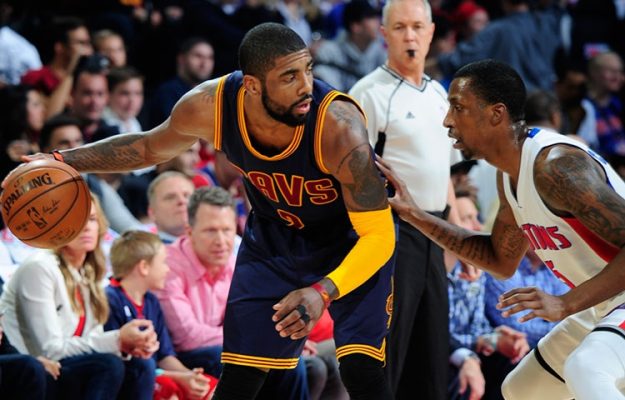2. Isolation Assassin
Is there ever a time when the former No. 1 pick cannot find himself a decent look at the hoop? No matter who is guarding him, how much time is left on the shot clock, or what the score is, Irving manages to always find a bucket in the isolation situation.
But merely getting the shot is not good enough in the playoffs, and Irving has proven that his ability to finish scoring plays is at an elite level. Irving can step back and hit a 3-pointer, he can operate in the mid-range with efficiency and is one of the most creative finishers around the rim in the league.
Much like his ball-handling, Irving has widely been considered one of the best isolation players since he has entered the NBA. This season, Irving has scored .95 points per shot with an effective field-goal percentage of 47.4-percent. According to NBA.com, this places him in the 80th percentile of qualified players in isolation situations.
And those numbers are actually drop-offs from years past. Last season, Irving scored 1.11 points per possession in isolation while shooting an effective field-goal percentage of 53.4 percent. According to FearTheSword.com, that trailed just Dirk Nowitzki, Kevin Durant and Mike Conley for players with 40 or more possessions.
As the game slows down in the playoffs and more isolation sets are used, Irving will play an even more prominent role in the Cleveland Cavaliers offense. There has already been a minor difference, as Irving’s usage rate has bumped up from 29.5 percent in the regular season to 31 percent in the playoffs.
Next: Clutch Gene










